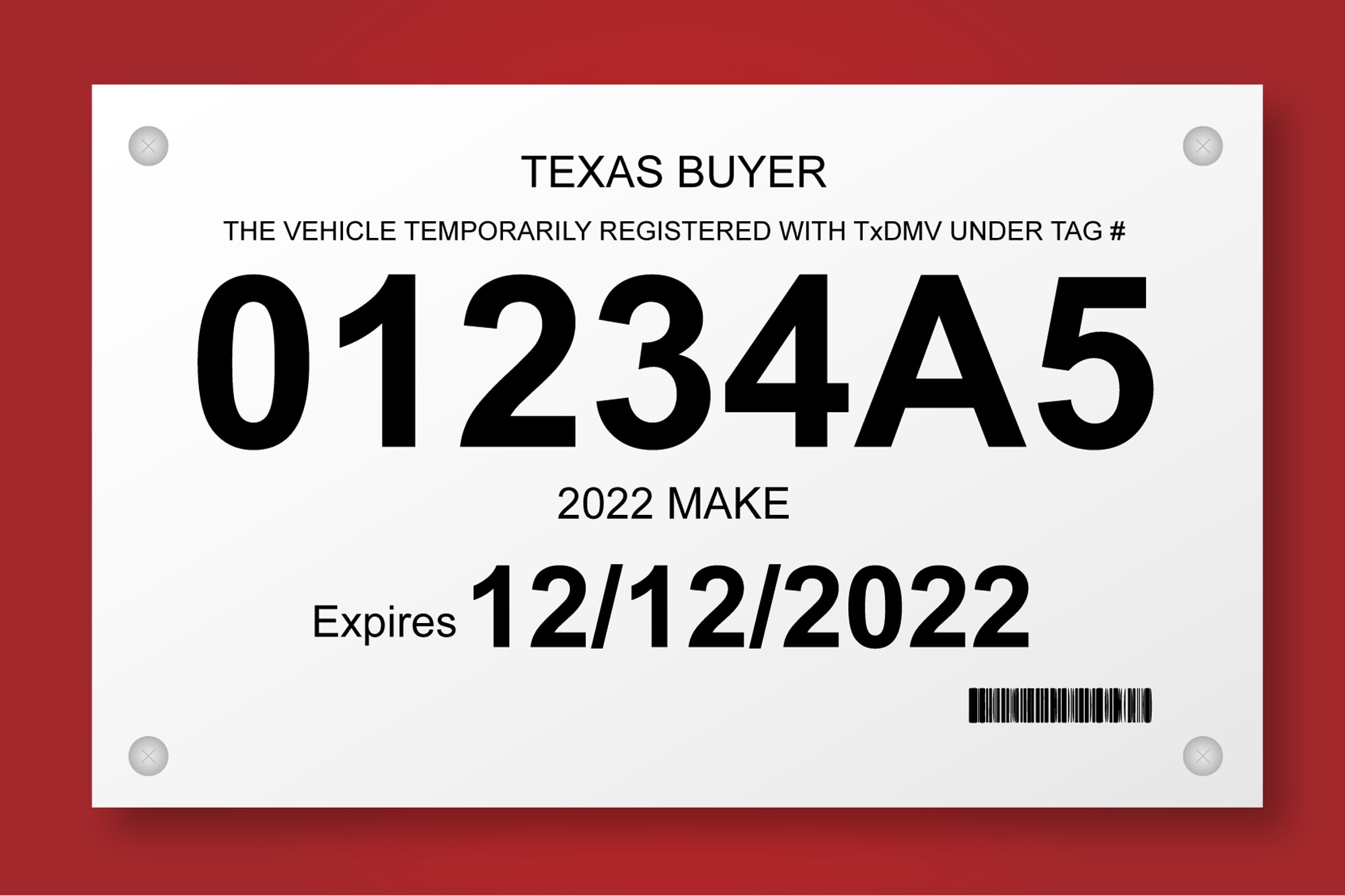Texas Is Fighting a Wave of Fake Paper License Plates
The Texas DMV is working to change state rules that have made it easy for criminals to generate and sell hundreds of thousands of fraudulent temporary license plates.
 Capital One
Capital One
As 2021 came to a close and many of us began to turn our minds toward holiday plans, regulators working with the Texas Department of Motor Vehicles (DMV) scrambled to clean up a big, ugly mess. Lax regulations make it relatively easy for any Texan to register as a car dealer. A lack of oversight means licensed dealers can print an unlimited number of DMV-sanctioned temporary tags for cars they never actually sold. The dealers then sell those tags on the black market, staying under police radar.
This is a big problem for law enforcement; some estimates say there are millions of fake paper plates on the roads. Since the bad tags come from the state system and look exactly like good tags, it’s all but impossible for officers to know at a glance that the information associated with the tag — for instance, the name and address of the car’s owner — is false.
The Black Market for Fake Temporary Tags
If you’re a law-abiding citizen, you might ask why there’s a black market for temporary registration tags. The main reason is to avoid detection for wrongdoing. If you know your car won’t pass a state-required safety or emissions test, you might buy a temporary tag to drive your car without fear of receiving a ticket for being overdue for an inspection. These tags are tied to fake names and addresses, allowing people to dodge vehicle-registration fees and camera-monitored road-use tolls. Even worse, drivers with warrants out for their arrest or who use vehicles in robberies or other crimes often buy fraudulent tags to hide in plain sight.
According to NBC 5 Investigates, Texans can get a dealership license — and with it, access to the tag system — for about $800. And because the state doesn’t have a fingerprinting requirement, these actors can use stolen identities to pass criminal background checks. The executive director of the Texas DMV says the agency doesn’t conduct mandatory site visits to new dealerships, and instead operates on a complaint basis. Some of the licensed dealers printing hundreds of thousands of Texas tags don’t appear to have cars for sale, offices, or employees at the addresses listed on their official paperwork.
Addressing the Growing Issue
Fake paper plates aren’t prohibitively expensive for buyers. We found them advertised on Houston-area Craigslist for between $45 and $60. Since they’re easy to generate in large quantities and the fraudulent businesses don’t have to bother with the expense of maintaining a real storefront or paying employees, temporary tags can mean lots of money for the rulebreakers who sell them. One Texas police investigator estimated that the tags could generate millions of dollars in profit for a dealer selling them in high volumes.
The problem exists in other parts of the country, too. The New York Police Department counted at least 550 crashes and 33 shootings that involved cars wearing fraudulent tags just in the first half of 2021. They said the rate of tag fraud has increased since the beginning of the pandemic. Many of these tags came from Texas and are tied to bad information, making it very difficult for police to find the people behind the crimes.
Texas regulators have already begun to address their fake paper license plate problem. In 2021, the state’s legislature authorized the DMV to:
- Deny a suspect dealer’s access to the tag-issuing database
- Set a limit on how many temporary tags dealerships can print each year based on various factors (e.g., age of the business, number of cars it sold in previous years, rate of growth in the car market, etc.)
The DMV board then voted unanimously to recommend a fingerprint requirement and mandatory site visit for new car dealers — but that may take some time to implement. The DMV’s executive director said in an interview with KXAN that the agency will need to seek the legislature’s approval to act on these recommendations. Problem is, the Texas legislature convenes only on odd-numbered years, so unless the state’s governor recalls the body early, these identity checks won’t go into effect until at least 2023.
As of February 2022, executive director of the Texas Department of Motor Vehicles resigned from her position amidst the current state of the paper tag issue.
Written by humans.
Edited by humans.
 Annie White
Annie WhiteAfter earning a degree in political science from Boston University in 2012, Annie White wisely chose to put those skills aside to pursue a career writing about cars. Since then, she has driven and reviewed hundreds of vehicles representing the full spectrum of the market and has also written about automotive technology and business trends. Her dream car is a Geo Tracker.
Related articles
View more related articles